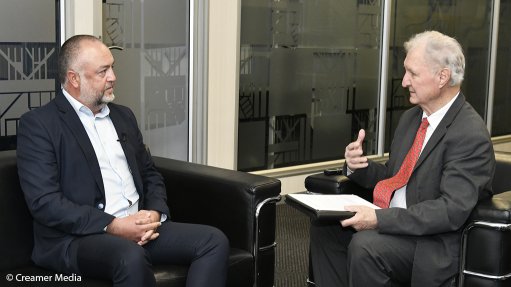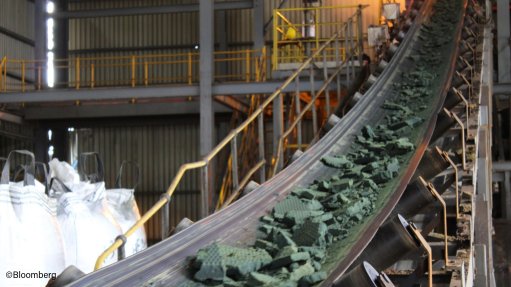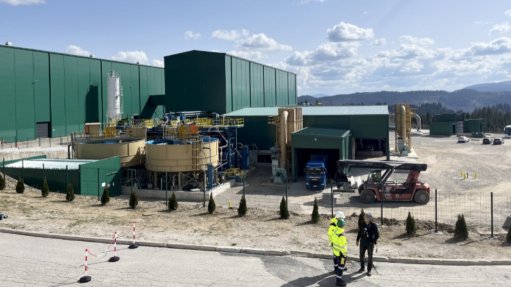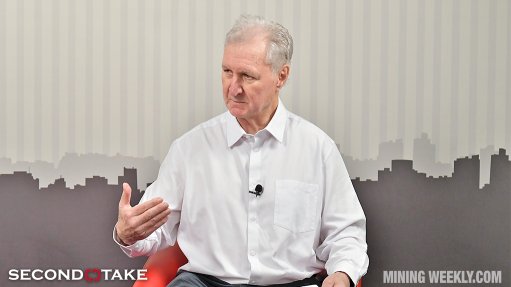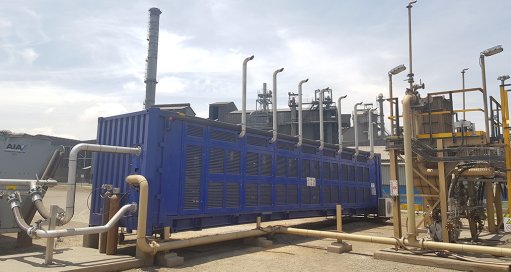Opinion Piece: Flexible employment is the ideal model for the construction industry in a state of flux
By Donné Nieman, Sales Director Western Cape at Workforce Staffing
The pandemic threw the construction industry into a state of turmoil. During the highest levels of lockdown, it was not permitted to operate at all, and many people lost their jobs and income. This has shone a spotlight on the employment model within the sector, where it has always been traditionally union-driven and based on permanent employment contracts. With the industry in a state of flux, this is often no longer a possibility. More flexible employment models such as Temporary Employment Services (TES) have become the ideal solution in an industry that faces fluctuating demand and uncertainty in the future.
Hit hard
In 2020, the South African construction industry suffered significantly, including a collapse of more than 30% in the second quarter of the year, and losses of between 120 000 and 140 000 formal jobs. This downward trend continued into 2021: according to Statistics South Africa, in the first quarter, the sector’s value add was down 17.5% on a year-on-year basis, following a fall of 19.8% in the final quarter of 2020. Given their inability to operate at all, construction companies simply could not continue to employ their full complement of full-time employees. As a result, the unemployment rate in the sector for the first quarter of 2021 reached 32.6%, with over 7.2 million individuals classed as unemployed.
More flexibility is needed
While there are plans for the government to stimulate the construction sector, including building the country’s first new city since 1994, the reality is that the construction industry is highly susceptible to external disruptive factors. Covid-19 magnified this, but other challenges such as load shedding, corruption and a weak exchange rate will all play their part in adding to the difficulties the sector faces.
The upshot of this is that permanent, full-time employment contracts are becoming less feasible, especially in a project-based industry. In addition, while there is much expansion planned, which will require the labour force to scale up rapidly, there is also uncertainty and the potential for projects to be cancelled or disrupted because of external factors, which may require the workforce to be scaled down. As a result, a more flexible employment approach is becoming essential, and TES providers are perfectly positioned to assist.
Focus on the core
The construction industry in fact lends itself perfectly to the temporary employment model. While there may be arguments favouring fixed-term contracts, there is actually a significant amount of administrative effort required to manage and maintain these. Many construction companies do not have the skills or resources for this, or the indemnifications in place to ensure compliance with the regulatory framework.
A TES provider has the expertise in specialist recruitment and can provide a flexible labour force with the required skills and specialist recruitment to enable construction companies to focus on what they do best. In addition, TES providers can offer temporary employees benefits such as those typically only afforded to full-time staff, and provide them with ongoing employment as projects come to an end or need to be shifted around.
TES providers can positively impact the B-BBEE scorecard for construction companies, which is an essential consideration in a tender-based industry. TES providers already have the relationships and connections within communities to ensure effective recruitment in line with requirements for using locally-based subcontractors, reducing the recruitment effort required. They will be able to provide a pool of vetted employees with the right skills, which will help to improve the quality of the building project and positively impact timelines and communities. In addition, reputable TES providers have the ability to deal with unions and bargaining councils on behalf of the construction companies, which is hugely admin-intensive.
Effectively, TES outsources the entire staffing function, including all of the administrative duties, human resources and disciplinary processes. They are indemnification experts and are skilled in dealing with labour relations issues. The core business of the construction industry is construction, and outsourcing to a TES provider, allows these enterprises to focus on their core while ensuring they always have a workforce available to support fluctuating demand.
Editorial Contacts
Wilhelm Nel
Workforce Staffing
011 532 0000
Kyle Webster
Evolution PR
Comments
Press Office
Announcements
What's On
Subscribe to improve your user experience...
Option 1 (equivalent of R125 a month):
Receive a weekly copy of Creamer Media's Engineering News & Mining Weekly magazine
(print copy for those in South Africa and e-magazine for those outside of South Africa)
Receive daily email newsletters
Access to full search results
Access archive of magazine back copies
Access to Projects in Progress
Access to ONE Research Report of your choice in PDF format
Option 2 (equivalent of R375 a month):
All benefits from Option 1
PLUS
Access to Creamer Media's Research Channel Africa for ALL Research Reports, in PDF format, on various industrial and mining sectors
including Electricity; Water; Energy Transition; Hydrogen; Roads, Rail and Ports; Coal; Gold; Platinum; Battery Metals; etc.
Already a subscriber?
Forgotten your password?
Receive weekly copy of Creamer Media's Engineering News & Mining Weekly magazine (print copy for those in South Africa and e-magazine for those outside of South Africa)
➕
Recieve daily email newsletters
➕
Access to full search results
➕
Access archive of magazine back copies
➕
Access to Projects in Progress
➕
Access to ONE Research Report of your choice in PDF format
RESEARCH CHANNEL AFRICA
R4500 (equivalent of R375 a month)
SUBSCRIBEAll benefits from Option 1
➕
Access to Creamer Media's Research Channel Africa for ALL Research Reports on various industrial and mining sectors, in PDF format, including on:
Electricity
➕
Water
➕
Energy Transition
➕
Hydrogen
➕
Roads, Rail and Ports
➕
Coal
➕
Gold
➕
Platinum
➕
Battery Metals
➕
etc.
Receive all benefits from Option 1 or Option 2 delivered to numerous people at your company
➕
Multiple User names and Passwords for simultaneous log-ins
➕
Intranet integration access to all in your organisation












